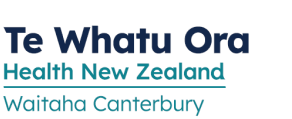What does it do?
Mefloquine is used to prevent and treat malaria.
Before you start
- Tell your doctor if you have mental health problems, an allergy to quinine, or if you have ever had a seizure.
- Tell your doctor if you are pregnant, planning to become pregnant, or breastfeeding.
How should you take it?
Take mefloquine as directed with food and a glass of water.
Sometimes mefloquine can make you feel sick or vomit. Taking the tablet with food may help prevent this. If you vomit within 30 minutes of taking mefloquine, you will need to take another tablet. If you vomit within 30 to 60 minutes of taking mefloquine, you will need to take another half a tablet.
What if you forget a dose?
For prevention: Take the missed dose as soon as you remember and then take your next dose on your usual day.
For treatment: Take the missed dose as soon as you remember.
Can you take other medicines?
Tell your pharmacist or doctor about all medicines or treatments that you may be taking, including vitamins, herbal products (e.g. St John's wort) or recreational drugs.
What side effects might you notice?
| Side Effects | Recommended action |
|---|---|
|
Seizures, unusual behaviour or thinking, suicidal thoughts Short of breath, persistent dry cough |
Tell your doctor immediately |
|
Anxiety, hallucinations, low mood Balance problems Hearing loss, changes in vision |
Tell your doctor |
|
Headache, dizziness Trouble sleeping, strange dreams, drowsiness |
Tell your doctor if troublesome |
|
Nausea, vomiting |
See 'How should you take it?' section |
If you notice any other effects, discuss them with your doctor or pharmacist.
Other information:
- Mefloquine can impair your ability to do tasks such as driving or using machines. Alcohol makes this worse. Discuss your risk with your health professional. (search NZTA - Are you safe to drive?)
This leaflet contains important, but not all, information about this medicine.
Prepared by the MyMedicines Committee at Christchurch Hospital, Te Whatu Ora - Waitaha, New Zealand. March 2023
For more general information about this sheet and its contents, see: What does a My Medicines sheet cover?
Te Reo Māori
Te Reo Māori information sheets supported by Health Quality and Safety Commission New Zealand
Web links for this sheet in different formats
Click on buttons to copy web addresses for this leaflet:
If your browser does not automatically copy these links use its copy command instead.
About My Medicines
My Medicines Patient Information Leaflets (PILs) contain important, but not all, information about the medicines they describe.
For more information about the sheets, see: What does a My Medicines sheet cover?
My Medicines is developed by a team at Te Whatu Ora – Waitaha. Our team is made up of doctors, pharmacists, and a non-medical person to help us keep to plain language. We also discuss our information with specialist health professionals or groups when needed

